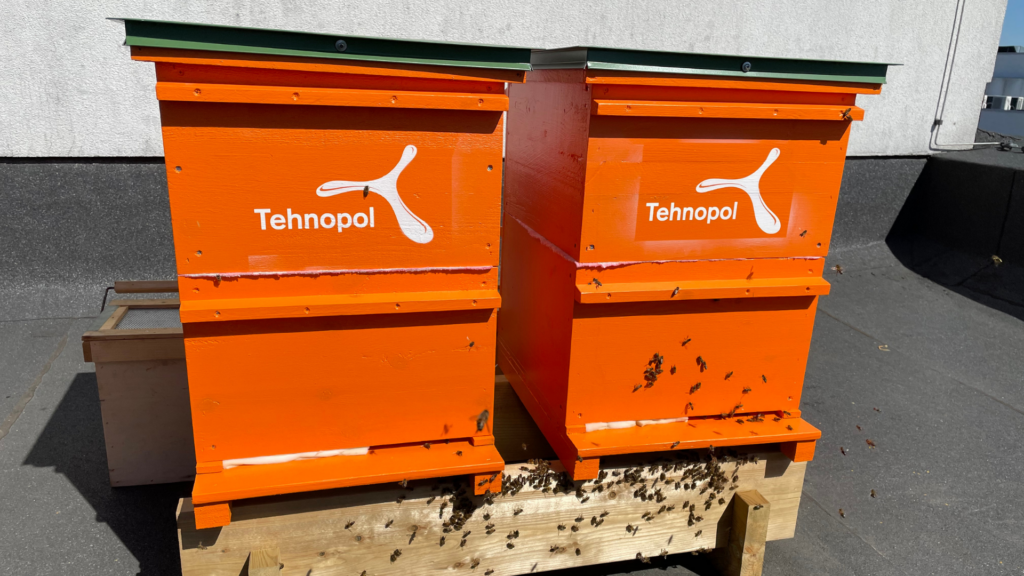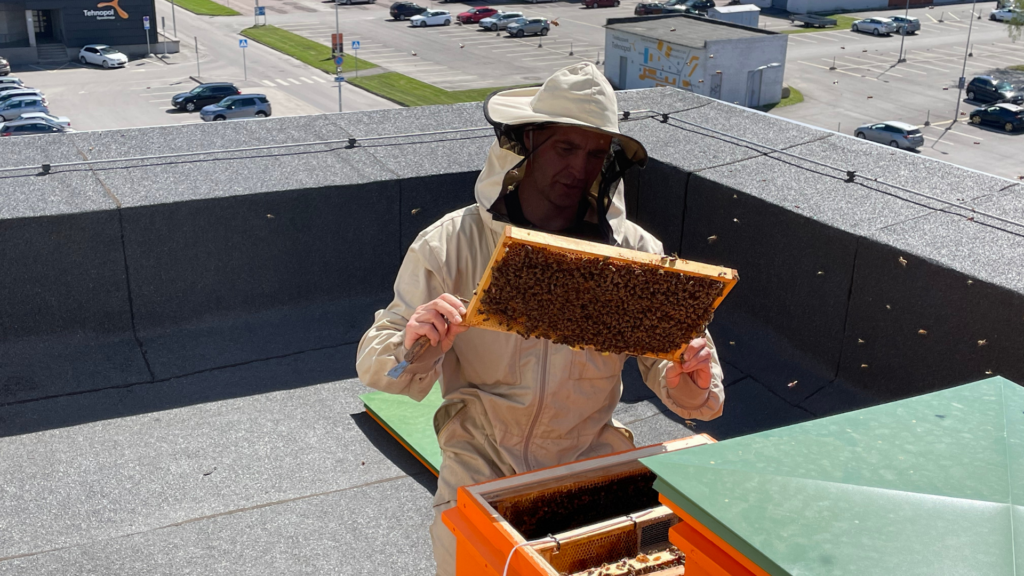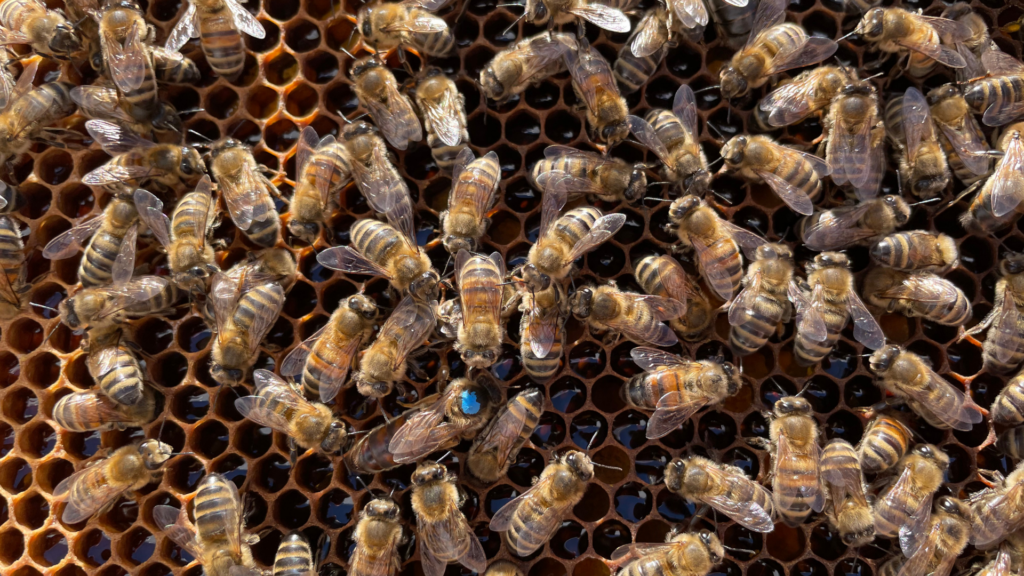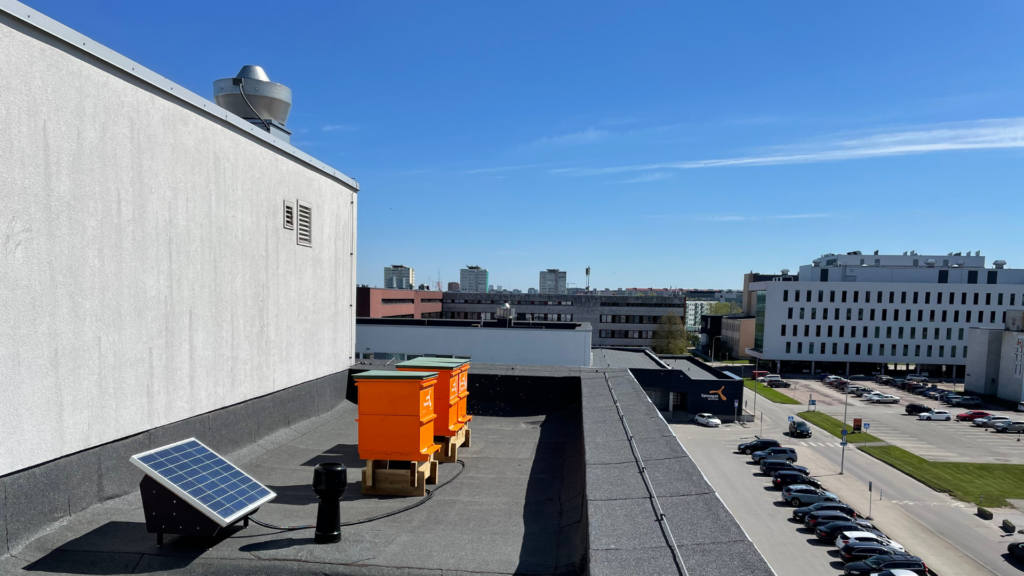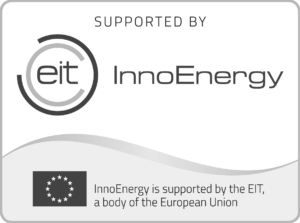24.05.2021
Meet Tehnopol’s newest tenants – bees in a smart beehive
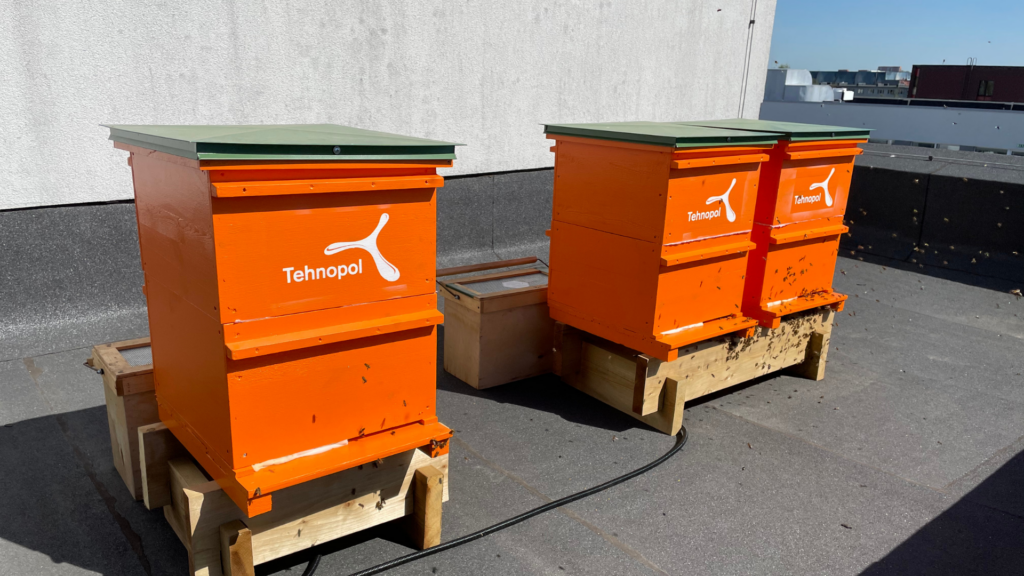
Science and business park Tehnopol has joined forces with companies MÖMesi and Aiotex and has installed three smart beehives at Tehnopol as part of a pilot project. The technology integrated into the hives makes it possible to monitor various indicators that give an idea of the changes in the bees’ living conditions, which are threatening their welfare and the need for intervention by the beekeeper.
The hive technology installed on the roof of Tehnopol’s building allows the monitoring of the hive’s internal temperature, relative humidity, CO2 levels, VOCs, ambient light and sound and air pressure. Real-time weather station data is added to the collected information and transmitted to the cloud server. Based on the information gathered with the sensors, researchers at Tallinn University and the University of Life Sciences are looking for data patterns that would indicate when there has been a significant change in the living conditions of bees. This helps to inform the beekeeper when problematic living conditions need to be remedied. The hive technology is supplied by electricity from the accompanying solar panels.
According to Ragmar Saksing, head of green technology at the Tehnopol science and business park, the project has the potential to improve the lives of beekeepers, bees and people living in cities. “The goal of Tehnopol is to contribute to the creation and development of state-of-the-art technologies. Testing plays an important role in the introduction of new technologies. Tehnopol has been an innovation test platform since its inception and has thus contributed to solving serious problems. When managing numerous hives, it is difficult to keep an eye on the welfare of bees. The innovative technology being tested at Tehnopol makes it significantly faster and easier. In addition, we can create an environment closer to nature in Tehnopol, which is important for recreation and restoring mental strength,” said Saksing.
Allan Liht, a beekeeper at MÖMesi, sees great potential in the project. “Smart hives and sensors have actually been tested abroad to monitor the welfare of bees. However, as we have involved researchers from Tallinn University and the University of Life Sciences in the project, we hope that during data analysis we can prevent a number of deeper problems, such as diseases in hives, which would help beekeepers much further in their work,” he explained.
Liht added that the project also hopes to popularize beekeeping among townspeople. “Often the urban environment is also suitable for bees. The flight radius of bees is about three kilometers, and since there are many flowering park and fruit trees, shrubs and other plants in the urban space, the bees have enough pollen to transfer, ”said Liht.
According to Aiotex CEO Urmas Eero, the pilot project will allow the company to test its solutions in a new context. “The beehives project is a good example for us of how an innovative approach and technology can solve complex problems with simple tools. Traditionally, our sensors, equipment and cloud platform are used to monitor the indoor climate of factories and homes, now we have a home and a factory where the inhabitants and workers are bees, ”said Eero.


